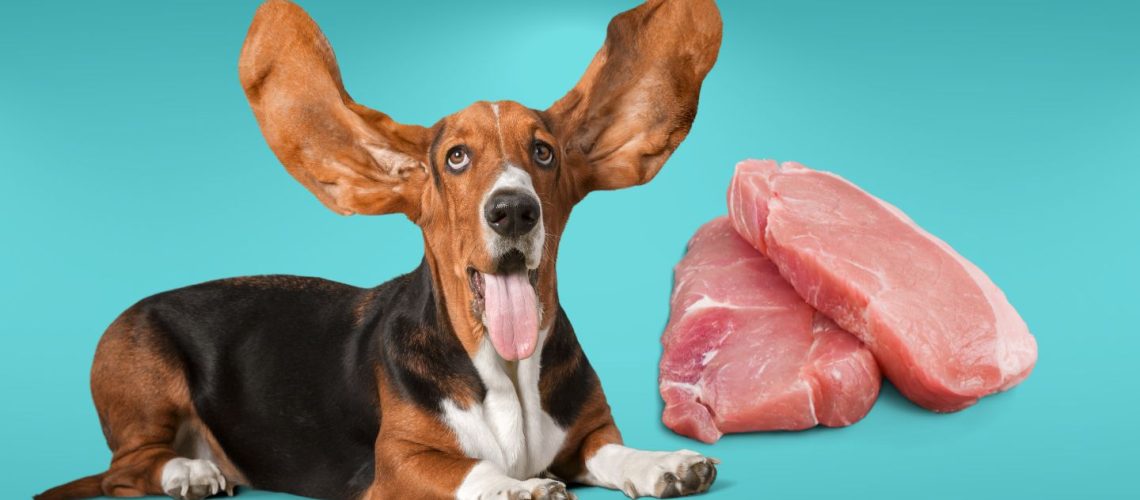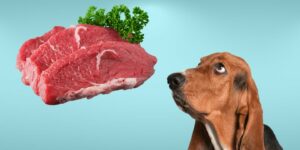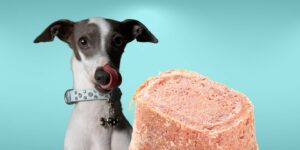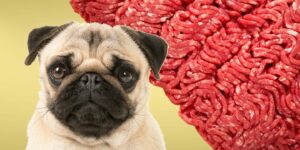The short answer is yes, dogs can eat pork. However, pork should be given to dogs in moderation and as part of a balanced diet. This question is important for dog owners because there are common misconceptions about feeding pork to dogs, and understanding the nutritional benefits and potential health concerns is crucial to maintaining your dog's health.
Nutritional Benefits of Pork for Dogs
Protein content and its importance for dogs
Pork is a good source of protein for dogs, which is an essential part of their diet. Protein helps build and maintain strong muscles and is necessary for overall growth and development.
Vitamins B and D in pork and their benefits for dogs
Pork contains vitamins B and D, which are important for a dog's overall health. Vitamin B plays a vital role in maintaining a healthy nervous system, and Vitamin D supports strong bones and teeth.
Minerals: Iron and Zinc in pork and their roles in dogs' health
Iron and zinc are essential minerals found in pork, which play a key role in maintaining your dog's immune system and promoting overall health. Iron is crucial for oxygen transportation in the blood, while zinc aids in wound healing and supports a healthy skin and coat.
Amino acids in pork and their importance in dogs' diet
Pork is also a good source of amino acids, which are the building blocks of protein. Amino acids are crucial for tissue repair, hormone regulation, and support healthy immune function in dogs.
Potential Health Concerns with Feeding Pork to Dogs
High fat content in pork and its impact on dogs' weight
While pork provides essential nutrients, it can also be high in fat, which can lead to weight gain if fed to dogs in large quantities. Overweight dogs are at a higher risk of developing illnesses and joint issues.
Pancreatitis risk due to high fat content in pork
The high fat content in pork can also contribute to pancreatitis, a painful and potentially life-threatening condition in dogs that affects the pancreas.
Potential allergenic reactions to pork in some dogs
Some dogs may have an allergy or sensitivity to pork, which can cause symptoms such as itching, vomiting, or diarrhea. If you suspect your dog has an adverse reaction to pork, consult your veterinarian for appropriate guidance.
The Importance of Cooking Pork for Dogs
The risk of parasites in raw pork
One of the main risks of feeding raw pork to dogs is the potential for it to contain parasites, such as Trichinella spiralis. This parasite can cause trichinosis in dogs, which can be deadly if left untreated.
Proper cooking methods to ensure pork is safe for dogs
It's important to make sure that any pork given to dogs is cooked thoroughly to kill any potential parasites. Use methods like boiling or baking, and avoid frying, as this can increase the fat content.
Avoiding seasonings and additives that can be harmful to dogs
When preparing pork for your dog, avoid using seasonings or additives that can be harmful to them, such as onions, garlic, and excessive salt.
How to Feed Pork to Your Dog: Tips and Guidelines
Portion size and frequency for different dog sizes and ages
The exact amount of pork that can be safely fed to a dog will depend on the size and breed of the dog, as well as its age and overall health. As a general rule, pork should only make up a small portion of a dog's diet and should not be given to them on a regular basis.
Choosing lean cuts of pork for your dog
When feeding pork to dogs, opt for lean cuts, such as loin or tenderloin, to minimize the fat content.
Incorporating pork into a balanced diet for your dog
Pork should be given in moderation and as part of a balanced diet that includes vegetables, fruits, and other protein sources.
Monitoring your dog's reaction to pork in their diet
Introduce pork gradually to your dog's diet and monitor their reaction. If your dog displays any signs of an adverse reaction, discontinue feeding pork and consult your veterinarian.
Alternatives to Pork for Dogs
Other protein sources to consider for your dog's diet
If pork is not suitable for your dog or you prefer to offer other protein sources, options include lean poultry, fish, beef, and even vegetarian options like legumes and tofu.
Hypoallergenic protein options for dogs with food sensitivities
For dogs with food sensitivities, consider hypoallergenic protein sources, such as lamb, venison, or limited ingredient diets specifically formulated for dogs with allergies.
Conclusion: Can Dogs Eat Pork Safely and Responsibly?
In conclusion, dogs can eat pork, but it should be given to them in moderation and as part of a balanced diet. It's also important to make sure that any pork given to dogs is cooked thoroughly to kill any potential parasites. By following these guidelines, you can safely feed pork to your dog and provide it with the nutritional benefits that it offers. However, it's always best to consult with a veterinarian for personalized advice on your dog's diet and nutritional needs.











